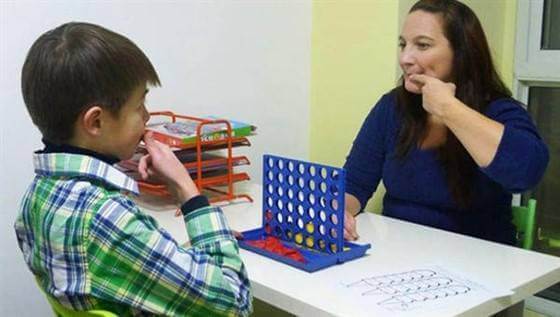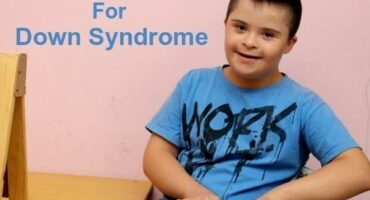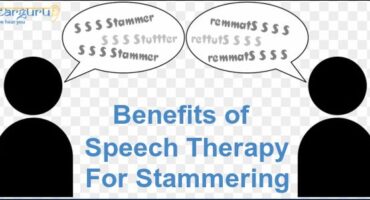Speech Therapy is the science of treating disorders affecting speech or verbal communications. It is also known as Speech Pathology. Speech Therapy is a branch of medicine. The Speech Therapist specialises in the treatment of speech and vocal disorders. A Speech Therapists diagnoses and treats people who do not develop normal speech. Speech Therapy also covers cases related to difficulty in swallowing.
Who Is A Speech Therapist?
A Speech Therapist is a Paramedical professional. Also known as a Speech and Language Pathologist. They attend to all matters related to speech and language disorders.
Mentioned below are some of the problems cured by Speech Therapy.
- Verbal Communication Disorders
- Development Of Speech And Languages
- Voice Related Issues
- Patients Having Swallowing Difficulties
- learning and intellectual disability
- Delayed Speech Development After Birth
- Speech Disorders Due To Brain Injuries Or Strokes
- Speech Development Due To Cerebral Palsy
- Speech Related Issues Due To Dementia
- Hearing Impairment Due To Old Age
Is Speech Therapy For Kids?
Speech Therapy is beneficial for Children as well as adults. In many cases, adults need the help of a Speech Therapist. Accidents or Paralytic strokes cause Speech impairment in adults. A patient suffering from a paralytic stroke is unable to use their muscles. They are unable to swallow food. Speech Therapy helps to strengthen the muscles. So they can have food and drinks without anyone’s help.
What Are Speech Disorders?
Speech disorders are mostly related to the inability to form clear words. Stuttering and lisping are the most common speech disorder.
What Are The Causes of Speech Disorders?
- Damage or paralysis to the Vocal cords.
- Damage to the brain due to an accident or stroke.
- Muscle and respiratory weakness
- Polyps or nodules on the vocal cords
The above are some of the common causes. Speech disorders develop with medical conditions not directly affecting the above parts.
Common Speech Disorders

Stuttering or Stammering
Stutter or Stuttering is commonly known as stammering. Stammering is the most common of all speech disorders. Stammering is very common during early childhood. Majority of the people speak clearly as they grow older. Children who continue to stammer need Speech Therapy.
Lisping
Lisping is another common speech condition in children. Children who lisp cannot pronounce sibilants. Sibilants are sounds like “S’, “Z”, “Sh” and “Zh”. Speech Therapy can cure the lisp in a majority of the cases. The Speech Therapist teaches the child to pronounce the words correctly. Speech Therapy also involves exercises to strengthen the speech muscles.
Apraxia
A speech disorder when the part of the nerves from the brain to the muscles malfunction. The nerves carry instructions to the speech muscles. In this case, the instructions do not reach the speech muscles. The person thinks of the words but cannot speak. Instructions are not received to move the lips, tongue and jaws. Though the muscles by themselves are healthy.
Dysarthria
A Speech disorder in which the patient is unable to move the muscles of the mouth and face. The severity of the problem depends on the part of the nervous system affected. The person can mentally form words but is unable to communicate. As the muscles do not support his effort to speak. In this case, the damage is to the nerves or the muscles.
Aphasia
This Speech disorder is different from Apraxia and Dysarthria. In this case, the damage is to the region in the brain responsible for language. This generally happens to adults after a paralytic attack. This can also happen due to brain tumours.
Autism
Autism is not considered as a speech disorder. Speech Therapy helps as children detected with Autism have speech disorders. A speech disorder is one of the early signs of Autism.
The following are some more conditions which are responsible for Speech disorders.
- Attention deficit hyperactivity disorder (ADHD)
- Oral or Laryngeal cancer
- Dementia
- Hereditary
What Are the Symptoms of Speech Disorders?
Below are some of the symptoms shown by people suffering from Speech disorders.
- Repeating sounds (most often seen in people who stutter)
- Adding extra sounds and words
- Elongating words
- Making jerky movements while talking (usually involving the head)
- Blinking several times while talking
- Visible frustration when trying to communicate
- Taking frequent pauses when talking
- Distorting sounds when talking
- Hoarseness (raspy or gravely sounding voice)
Speech Therapy Treatment
Speech Therapy treatment depends on the type and severity of the disorder. At times mild disorders take care of themselves. In case the disorder does not go away, it is advisable to consult and start treatment.

The Speech Therapist decides on the course of the treatment after proper diagnoses. Speech Therapy consists of regular exercise sessions. Exercises help to strengthen the muscles used for speaking. Breath control and muscle strengthening exercises help to overcome the disorder. The therapy results in normal and fluent speech.
The Myths and the Facts about Speech Disorders
There are many myths associated with speech disorders. Do not accept Home remedies and unscientific advice. Read about the Myths and the real facts. Always approach a qualified Audiologist and Speech Language Therapist.
Seek Early Professional Help
Parents and guardians should seek advice from a professionally qualified Speech Therapist. Delay or absence of proper Speech Therapy results in the child growing up with multiple personality disorders. Issues like anxiety, phobia, shyness and nervousness are also possible. They withdraw in a shell due to the embarrassment caused by the speech disorder.
Parents and guardians can locate a Speech Therapist in their area. Please mention the requirements on our Helpline



